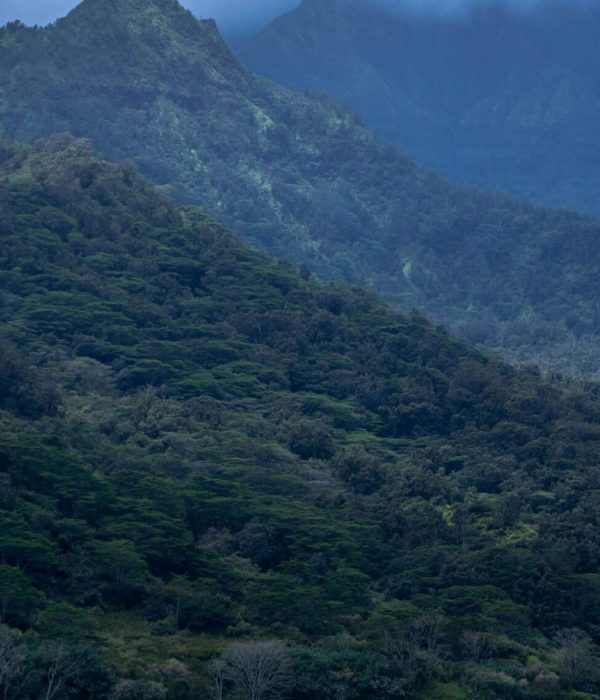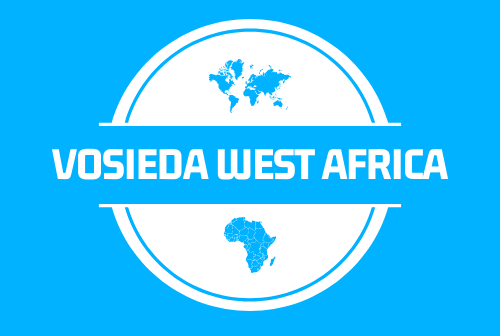Climate & Environmental Sustainability
We work to preserve West Africa’s dwindling tropical forests and environment while improving the quality of life for communities across Liberia and the West Africa Mano River Basin.

How does VOSIEDA help communities protect and value their natural resources?
VOSIEDA has been working for the past 20 years to empower communities in protecting the environment, which is vital to sustaining life on Earth. We have achieved this by protecting the forest, safeguarding water resources, and preserving nature to protect the climate, all essential for human life.
Why work for climate and environmental sustainability?
Ensuring the resilience of our planet through conservation, restoration, and sustainable use of nature in Liberia and the Mano River Basin.
VOSIEDA works with partners and local communities to research and carry out field projects and multi-stakeholder dialogues aimed at protecting vulnerable natural resources such as our forests, biodiversity, and critical ecosystems. Second, we are undertaking a series of education and advocacy programs aimed at inspiring, informing, and enabling local stakeholders to protect nature for future generations. Third, we are increasing the effectiveness of law enforcement and citizens’ demands for accountability in natural resource management.
Our climate, environment and conservation priorities
Forest and Sustainable Land Governance
Forests play a crucial role in regulating the global climate and are also significant in supporting local communities and biodiversity. However, in Liberia and the Mano River Basin region, deforestation and forest degradation are causing harm to the biodiversity and contributing to poverty and climate change. Nevertheless, VOSIEDA is taking necessary measures to address this issue by working towards the construction of sustainable landscapes, protecting primary forests, conserving biodiversity, and promoting the rights of forest communities in Liberia and the Mano River Basin region.
Climate Change
Climate change is one of the most crucial and threatening issues of our time, with far-reaching impacts on local communities in Liberia and the Mano River Basin region. VOSIEDA addresses climate impact by strengthening resilience and adaptive capacity to climate-related hazards and natural disasters in local communities. We aim to improve education, raise awareness, and enhance institutional abilities to deal with the impacts of climate change, including adaptation, impact reduction, and early warning systems in local communities.
Nature-based Solutions
Nearly 90% of Liberia’s five million people depend on open wood fires and charcoal for cooking and other necessary commercial and institutional uses. Additionally, 85% of the population is engaged in traditional agriculture, using slash-and-burn farming methods. As a result, the level of deforestation for the expansion of cropland, firewood, charcoal, and unsustainable extraction of timber and other forest products is causing extensive deforestation and soil erosion. At the current rate, biodiversity loss and ecosystem degradation continue, or even accelerate, in Liberia.
In response to this, VOSIEDA is using Nature-based Solutions to address significant social and environmental challenges, including climate change, deforestation, poverty, food insecurity, local economic development, restoration, and biodiversity loss. We work to protect, sustainably manage, and restore natural and modified ecosystems that effectively and adaptively address societal challenges. We strive to support human well-being and provide biodiversity benefits simultaneously.
For example, we are using a nature-based solution to restore degraded forest corridors in Liberia. We are also promoting agroforestry practices on community land and strengthening forest monitoring and law enforcement. We empower communities to build three nurseries, including fruit and timber trees. We believe in the power of integrated ecosystem management, which aims to sustain ecosystems to meet both ecological and human needs.
Deforestation - Free Smallholder Supply Chains
Liberia’s efforts to tackle deforestation have faced significant challenges, with small-scale agriculture identified as the primary driver. Unfortunately, despite various national partnerships and projects established to address the issue, extensive deforestation continues to occur. This has resulted in adverse impacts, such as biodiversity loss, the depletion of carbon storage sinks, soil degradation, and weather variability.
Working with key partners, such as the Swedish Embassy in Monrovia, VOSIEDA is undertaking the following programs: (1) protecting and restoring forest ecosystems and helping communities adapt to climate change; (2) improving the livelihoods of local communities through climate-smart practices; (3) developing economic opportunities for zero-deforestation agricultural production in Liberia and the region, and (4) strengthening the governance of land use.
Biodiversity Programme
Biodiversity encompasses the remarkable and varied spectrum of life on Earth, which is crucial for the sustainability of our communities. However, Liberia and the Mano River Basin in West Africa face significant threats to their biodiversity. These threats include habitat destruction, poaching, resource overexploitation, the introduction of non-native invasive species, and civil unrest.
VOSIEDA conserves biodiversity in Liberia and the Mano River Basin region by assisting communities in securing their livelihoods while coexisting with biodiversity. This objective is accomplished through community-led conservation initiatives aligned with important international policies and commitments to address global biodiversity loss and reduce multidimensional poverty.
Ocean and Coastal Programme
About 40% of Liberia’s population lives in coastal regions and the Mano River Basin, facing unique challenges. These areas, known for water access and economic opportunities, are increasingly impacted by pollution, biodiversity loss, and climate change. Unsustainable practices have left only about 15% of coastlines in their natural state. The degradation of marine ecosystems threatens aquatic life, jeopardizing the livelihoods and health of coastal communities.
VOSIEDA is actively involved in integrated coastal zone management (ICZM) to address conflicts arising from nature conservation, tourism, and fisheries. The organization implements adaptive strategies to mitigate the impacts of rising sea levels, including the construction of elevated dikes and floodplain polders. Additionally, VOSIEDA advocates for the “Building with Nature” approach, which focuses on enhancing natural features such as oyster reefs and salt marshes. Furthermore, VOSIEDA engages in beach cleanup initiatives and promotes practices such as recycling, reusing materials, and purchasing ethically sourced, locally produced goods. The organization also emphasizes the importance of avoiding single-use plastics and utilizing eco-friendly products.
